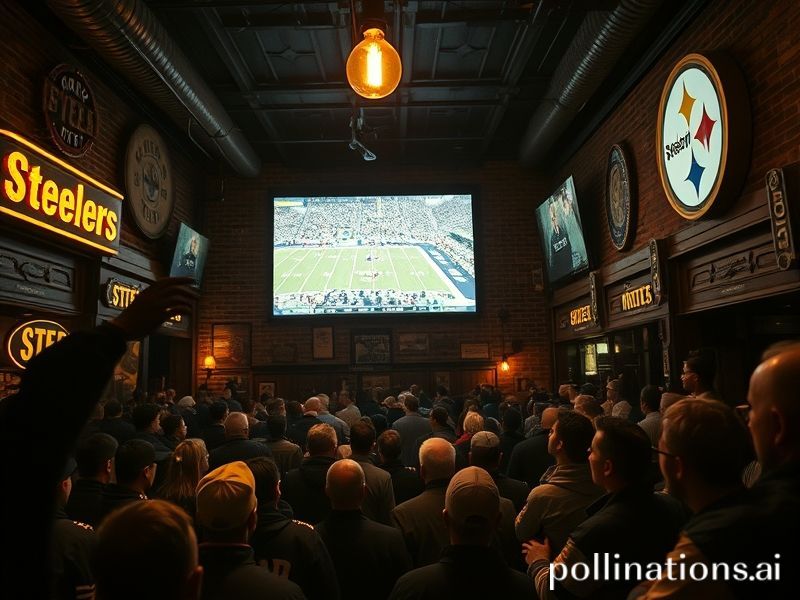Global Streaming Wars: How Medical Drama ‘The Pitt’ Became the World’s Newest Obsession
**The Global Scramble for “The Pitt”: How a Hospital Drama Became the World’s Newest Currency**
In a world where nuclear powers trade threats like baseball cards and climate change is delivering punchlines nobody asked for, humanity has united around one burning question: where the hell can I watch “The Pitt”? This medical drama—set in a Pittsburgh hospital because apparently Detroit was too cheerful—has become the international community’s newest obsession, proving that when civilization teeters on the brink, we’ll all rally around attractive people in scrubs pretending to save lives while their own fall apart.
The show’s global rollout reads like a geopolitical thriller written by someone with a dark sense of humor. While Max has graciously gifted American viewers with weekly episodes—because nothing says “land of the free” like scheduled programming—international audiences are navigating a labyrinth that would make Daedalus weep. Canadians, those polite souls who apologize for existing, can stream it on Crave, presumably between hockey fights and existential dread about being America’s hat. Meanwhile, our friends Down Under catch it on Binge, which Australians chose over the more accurate name “She’ll-Be-Right-Mate.”
The European Union, demonstrating the bureaucratic efficiency we’ve all come to cherish, has managed to fragment access across member states like they’re dividing a particularly contentious inheritance. Sky owns the rights in Germany and Italy—because if anyone understands medical emergencies, it’s the country that invented both Fascism and over-engineering. France gets it on Prime Video, where viewers can watch between strikes and existential cigarettes. The UK, in its post-Brexit glory, streams it on yet another platform, proving that leaving the EU hasn’t made accessing American content any simpler—who could have seen that coming?
But here’s where the plot thickens like hospital pudding: in regions where legitimate access remains as elusive as a politician’s promise, viewers have embraced the time-honored tradition of creative problem-solving. VPN usage has skyrocketed faster than a medical drama’s ratings during a pandemic, with viewers essentially performing digital medical tourism. It’s heartwarming, really—nothing brings the world together quite like collectively pretending to be American for entertainment purposes. Somewhere, a Syrian refugee and a Norwegian accountant are bonding over their shared IP address in Delaware.
The irony isn’t lost on anyone paying attention. While actual healthcare remains a luxury commodity in many nations—Americans must mortgage their homes for an aspirin—everyone can access fictional medical care from the comfort of their couch. The show’s depiction of heroic doctors saving lives regardless of insurance status plays like utopian fiction to international audiences who’ve actually experienced healthcare systems that don’t treat patients like revenue streams. It’s medical escapism at its finest: watch attractive Americans receive immediate, excellent care without anyone asking for their credit score first.
The global hunger for “The Pitt” reveals something profound about our species. We’ve weaponized streaming services, turned them into soft power tools, and somehow convinced ourselves that geographic content restrictions make sense in an interconnected world. Meanwhile, the same technology that lets us watch fictional doctors save lives can’t seem to solve actual global health crises—though it excels at turning them into profitable content.
As nations bicker over everything from trade agreements to whose turn it is to host the apocalypse, at least we can agree on one thing: we all want to watch pretty people fake-cry over patients who’ll miraculously recover by episode’s end. It’s comfort viewing for a world that’s increasingly uncomfortable with reality. And really, what could be more human than seeking solace in fictional suffering while actual suffering plays out on the other channel?
The search continues, the VPNs hum, and somewhere in Pittsburgh—both real and fictional—life goes on. The world burns, but at least we can watch it from multiple streaming platforms.







